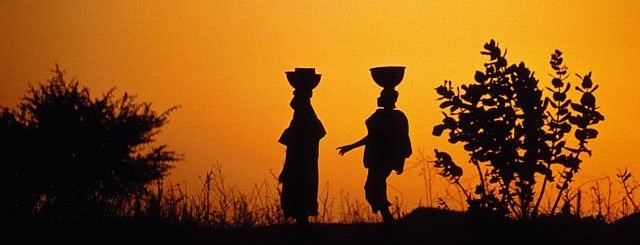Chad-Cameroon Pipeline
Advocates from around the world implored the World Bank use caution around its investment in the Chad/Cameroon Pipeline Project when reports surfaced of state-sponsored military violence in Chad.
Rebellions led by Chad’s former Defense Minister Youssouf Togoimi began to spread throughout the country. Beginning in the north, they eventually trickled into the area projected to be affected by the enormous project.
The Chad/Cameroon Pipeline Project would involve drilling 300 oil wells in Chad, extracting 225,000 barrels of oil per day (peak production), and constructing a 650-mile long pipeline through Chad and neighboring Cameroon. The pipeline route would cut through farmland and natural forests en route to an offshore terminal on the coast of Kribi, Cameroon. The intended recipients of the World Bank loan were the governments of Chad and Cameroon and a multinational consortium of oil companies composed of ExxonMobil, Chevron, and Malaysia’s Petronas.
Late in May of 2000, military and administrative officials loyal to Chadian leader Idriss Deby threatened to kill citizens who did not denounce the rebellion. According to sources, militants also made it clear that anyone who opposed the oil extraction would be summarily executed. Such critics included Delphine Djiraibe, a determined human rights defender advocating for local communities whose environment and livelihoods would be threatened by the proposed pipeline, and who worked with Northern NGOs to lobby the World Bank and other institutions involved in this project — despite the great personal risks her advocacy brought upon her.
In time, citizens’ organizations in Chad and Cameroon, as well as 27 members of the US Congress, raised concerns with the World Bank regarding the high environmental and social risks of the project. With the support of CIEL, the groups called for a two-year moratorium in which Chad could develop a proper legal framework as well as establish environmental safeguards and human rights protections necessary for the implementation of the Project. Nonetheless, the World Bank elected to fund the project.
When reports surfaced in 2000 that Chad used $4 million of the allotted funds to purchase weapons, the Bank appointed an International Advisory Group (IAG) to act as a watchdog for the case. The IAG proved ineffectual. Vague obligations outlined in the IAG’s charter, called the “Terms of Reference,” resulted in an unclear understanding of the IAG’s role in the Pipeline Project, and the IAG’s role in the country’s human rights issues was neither specified nor addressed.
